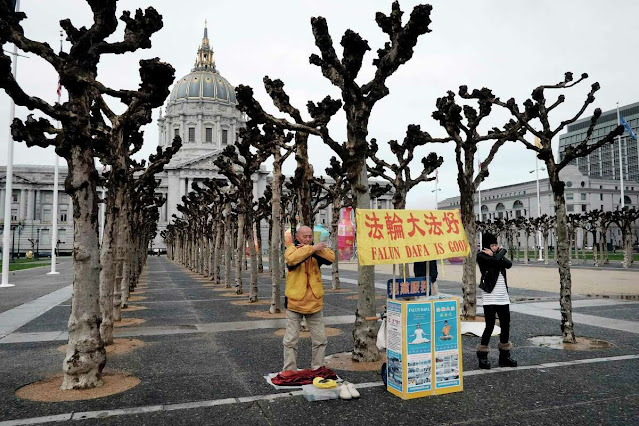An organizer of the Chinese spiritual movement Falun Gong who fled to California is eligible for political asylum because he is likely to be arrested and imprisoned if returned to China, a federal appeals court ruled Friday.
Chunguo Liu’s application for asylum had been rejected by an immigration judge and the U.S. Board of Immigration Appeals, who both concluded he had failed to show he faced persecution if deported. But the Ninth U.S. Circuit Court of Appeals in San Francisco said Liu’s testimony, and a U.S. government report on China’s treatment of Falun Gong members, demonstrated a likelihood of persecution.
“Liu’s testimony established that government agents sought to arrest him for practicing and organizing Falun Gong and did in fact arrest, detain, and imprison all of the people with whom he regularly practiced,” the three-judge panel said. The court said Liu had also testified credibly that police in China had often come to his home to look for him since he left the country.
Falun Gong, a meditation practice, grew rapidly in China in the 1990s before it was outlawed by the government in 1999. Its followers have marched in San Francisco and elsewhere to protest China’s treatment of the movement.
Liu’s case is long-running — he appealed the immigration board’s ruling in 2015 in Los Angeles and has remained in the United States since then. The timing and circumstances of his flight from China were not described in the court ruling, and his lawyer could not be reached for comment.
Federal appeals courts seldom overturn deportation rulings, generally deferring to the findings of the immigration courts, a branch of the U.S. Justice Department. But the panel in Liu’s case said there was “no substantial evidence” to support the board’s conclusion.
The court said a 2012 report by the U.S. State Department, cited by Liu, found that Falun Gong practitioners in China “have been subjected to involuntary commitment to psychiatric facilities, physical and psychological coercion to renounce their beliefs, and assignment to reeducation-through-labor camps.”
The court returned the case to the immigration appeals board for further review, but said the record in the case “compels the conclusion that Liu is eligible for asylum.”
The panel consisted of Judges Sidney Thomas, M. Margaret McKeown and Ronald Gould.

No comments:
Post a Comment